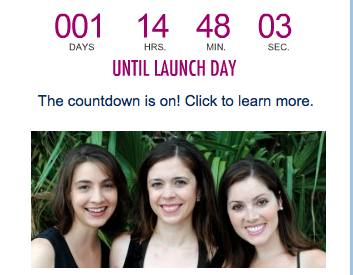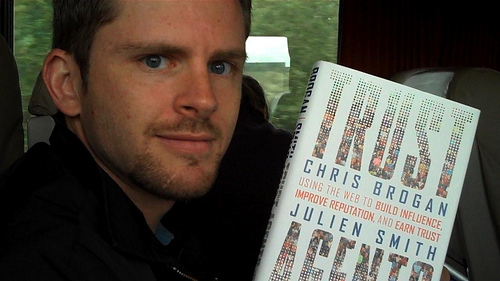Right now, a large percentage of the public is engaged in “Back to School” fever! This includes first-time students, students partially through the courses required for graduation, parents, and educators returning to the classroom after well-deserved summer break/holidays. With economic realities being what they are “Back to School” fever is also frequently wrought with worry and anxiety at one’s ability to pay for everything.
The cost of textbooks, as a percentage of the overall cost of a post-secondary or college education, is only rising. Should you purchase the textbook, look for a charitable friend who can lend you the textbook(s) that you will need, or search for another alternative such as using a previous edition instead of the newest, costlier edition? This is a difficult question to answer but let me play devil’s advocate and pose a few questions.
Q1: I am just starting my training to become a music therapist. Won’t my textbooks likely go through at least one update by the time I am beginning to practice?
Luckily for you music therapy textbooks/resources have a long “regeneration” cycle. There are a variety of reasons for this including: the specialized nature of music therapy vs. a more popular topic (e.g. accounting practices), the time it takes for new techniques and practices to be incorporated into the training for future MTs/environments, the time available for the authors themselves to rewrite and update the material, and cost recovery by the publisher. In my 15+ years of experience, it is often 5-10 years between new editions of a particular textbook. In some cases, resources that were available as much as 2o+ years ago are still available unchanged. Hence you shouldn’t fear that your textbooks will be “out-of-date” any time soon.
Q2: I can get a previous version at quite a discount from a friend or fellow student. Why not go that route?
Yes, it is possible that you will be in the unfortunate position of “unfortunate timing” (the transition year between the new edition of a textbook and the remaining availability of the previous version). While it may be tempting to “go with the best deal” I would personally recommend against it. Why? 1) The newer edition of the textbook holds information concerning the latest developments and techniques (not proven and/or known about at the time that the previous edition was published). 2) The newer edition may expand upon information previously presented in the earlier edition. A great example of this relates to the historical evidence concerning music therapy – today’s knowledge and understanding of the historical evidence is significantly more detailed and documented than when I was student studying to become a music therapist. 3) There are inevitably formatting, font, and moving about of material within editions. This will inevitably lead to frustrations such as “referencing wrong page numbers” and/or “missing facts” that may, in fact, lead to lower grades on quizzes and examination.
Q: My textbooks are just going to gather dust after I graduate/May not be relevant to the population that I ultimately decide to work with?
First, while you may not reference your high-school notes and/or textbooks, you WILL do so with your music therapy textbooks. You cannot forsee your working situation right now and it may well be that you end up moving to a geographically isolated, or employment isolated situation where you are are the only music therapist. In both cases, you will inevitably need to “go back” to your notes/textbooks for ideas and inspiration.
They also say that a modern worker will have 5-6 different jobs during their “employable years”. This means 5-6 jobs in different sectors of the workplace. In music therapy we have the advantage of remaining in the “job” of music therapist, while shifting clinical populations. It is not a case of “relearning” an entirely new occupation, but rather relearning a small portion of those skills that you employ on a day to day basis. Regardless, those textbooks will once again provide valuable ideas and resource material when you shift clinical populations.
Finally, speaking as a MT educator, I can also say that I constantly draw on materials from my past, and material from the present, to engage and challenge my students, in their own learning and understanding of the big question, “What is music therapy?”. Sometimes, just sometimes, old is good!
Q4: Great comments but I still can’t afford to get every new edition, or old edition, of every textbook that I need!
Sadly, neither can I. In this instance I am going to make a very controversial suggestion – speak with your professors directly and ask them how much they are relying on information from the text vs information presented through lecture, video, internet, etc. (Yes, fellow educators, “we are not in Kansas anymore!”. I truly believe that digital resources such as videos and sources from the internet should be a part of your education and collaboration with your students). While not ideal, it may give you a sense of textbooks that you absolutely must purchase vs textbooks that you should purchase.
Q5: Are there any other options/opportunities that I can take advantage of?
I’ve just learned about a new textbook service called Chegg. (Part of my inspiration for this post). It is similar to many other services that allow you to “rent” your textbook but is very different from those services in its’ approach. Indeed, it has several additional services that go above and beyond the simple renting of textbooks. It is also one of the VERY few, if any, services that I have seen offer copies of the 3rd edition of the textbook entitled, Introduction to Music Therapy: Theory and Practice by Davis, Gfeller, & Thaut (published by the American Music Therapy Association), used in many first-year classrooms.
Secondly, I would recommend that you develop your educational networks before and during your education as a music therapist, using social networking platforms such as Facebook, Twitter, LinkedIn, and/or Google+. We live in a educational environment that can potentially span the globe. There is no reason that you shouldn’t seek out additional, or specialized sources of information concerning topics in, and the clinical practice of, music therapy.
Finally, I am going to recommend that both educators and students alike consider sharing their resources concerning music therapy, freely and widely, using the protections inherent in technologies such as Creative Commons licenses. We are still being far too restrictive and/or sensitive to financial pressures in our dissemination of information concerning the effects and practice of music therapy. I’m going to take another bold step out here and suggest that movements such as the Open Educational Resource (OER) movement, are the future of public education. Legislation and 3rd party reimbursement will only make the field of music therapy more publicly accessible. Free publicity, such as we saw in the new coverage surrounding the rehabilitation of Senator Gabrielle Giffords or the recent publication of the effects of music therapy upon cancer, will only promote the profession so far. Seeing music therapy in action, and learning about its’ fundamental principles through FREELY available OER will help to ensure that music therapy continues to expand and grow as a viable and diverse treatment modality.
Good luck and best wishes to all of the future and current students enrolled in global music therapy training programs!
Please feel free to leave a comment in the box provided below this post. John Lawrence has been a music therapist for the past 16 yrs and a sessional instructor in music therapy for the past six years. Any opinions expressed in past, present, and future postings to Global Music Therapy are his alone and do not necessarily reflect the opinions of an employer or music therapy association of which he is a member.







